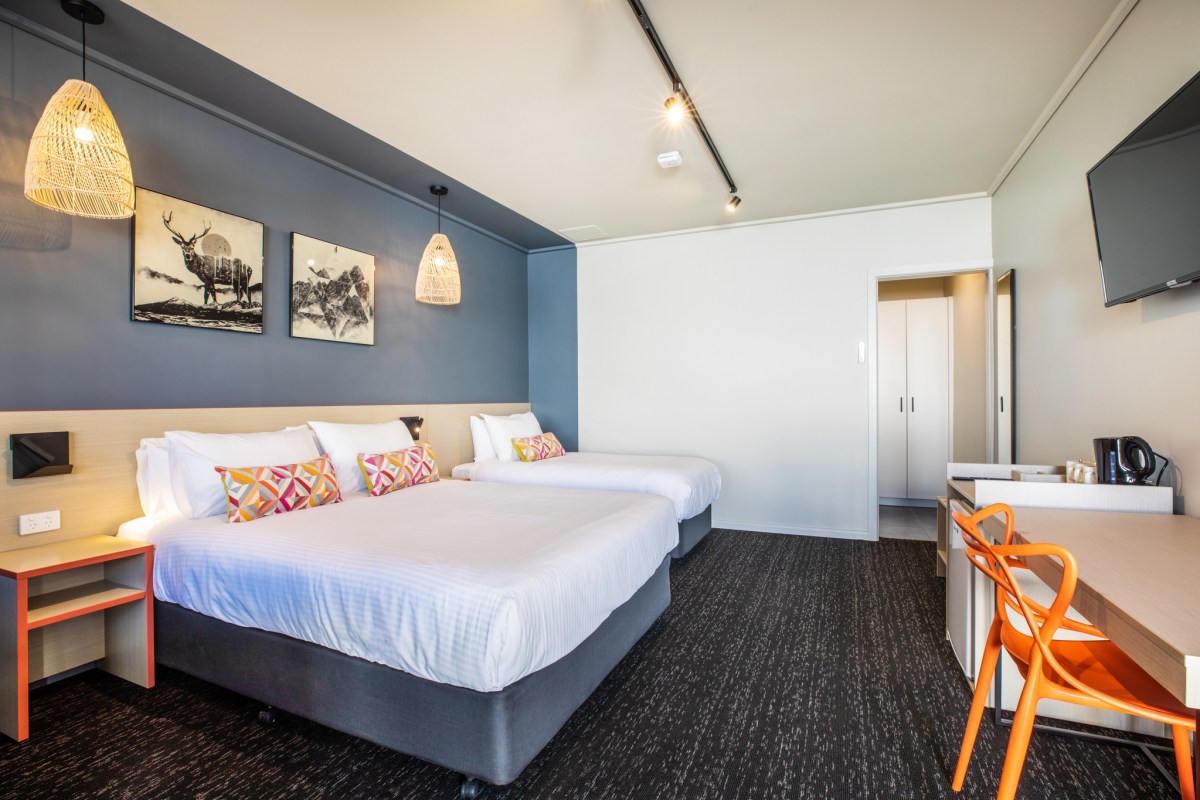Closing more than 2000 rooms across 100 hotels wasn’t enough to stop ALH Group and Nightcap Hotels from adapting to host the suave COVID traveller. After a surreal year in 2020 filled with border closures and a new heightened awareness for cleanliness, the pub accommodation group updated its operations swiftly to usher in a stable state of recovery in 2021.
National accommodation manager Brett Salter said performance of the group’s hotels last year was strongly location based, with WA hotels recovering sooner as the state recovered the quickest to normal business structures.
To adapt to the changing circumstances in different states and to suit the COVID-weary traveller, Salter embraced change and the implementation of COVID-safe technology.
“I suppose that’s the positive impact of COVID, we had to use our down-time effectively to first adapt to a COVID-safe environment. We, along with our guests, have really embraced technology with our initiatives that include pre-arrival mobile check-in and payment; contactless kiosk check-in; digitised room service ordering; and in-room compendium via SMS.”
The group quickly updated its marketing strategies, turning to inter/intrastate travellers to increase visitation figures. Despite this, many hotels located along the borders continued to suffer from recent holiday lockdowns.
“The Albury market which throughout Christmas holidays is predominantly Victorian-based guests was heavily impacted by border closures,” Salter said. “We were looking forward to a strong January, so when the Victorian border closed to NSW on 1 January, Albury experienced high levels of cancellations that could not be replaced.
“Border closures force travellers to find earlier flights or drive home from their destination whether it be city based or suburban, it disrupts us all.”
Changing policies
Traveller fear of sudden closures also affected the confidence for Australians to travel domestically, however the group’s hotels adjusted its policies to subdue these worries.
“We’re in the business to satisfy our guests, we took the flexible approach that any cancellation due to COVID, (including non-refundable) we would ideally postpone the dates where applicable, or alternatively refund 100 per cent of any deposit or funds taken,” Salter stated.
“If you were charged a cancellation fee due to COVID which was out of your control, would you return to that hotel or brand? The likely answer is no. We’re serious about building a loyal client base as we grow our Nightcap Hotels accommodation brand.”
ALH Group business development & partnerships manager Sofie DiDonato said the business’ flexibility was also an asset when it analysed the changing trends of the travel industry. The group is already reaping the rewards, with its direct website bookings increasing by three per cent compared to the same period last year.
“We have all learned so much. 2020 shaped the savvy COVID-traveller – keen to explore the beauty of their own backyard with flexible and safe accommodation without compromising on value. It’s an obvious cliché, but we act on customer feedback, frequently adjusting our strategies to provide the most value,” DiDonato explained.
“Knowing and adapting the ‘value’ of our brand to this traveller is our biggest opportunity in 2021. Our primary guests are leisure-seeking Aussies, on the road travelling Australia or visiting family in suburban locations. Therefore we continue to market directly to them. We initiated new partnerships to grow secondary segments and replace the lost corporate business. With the changing traveller trends we continue to learn, adjust, and move forward with gusto.”
Three accommodation trends identified by ALH Group:
- If you’re located in a capital city such as Melbourne, Sydney and Brisbane it’s extremely tough without corporate guests, events and international travel with hotels often experiencing occupancy levels well under 20 per cent (without hotel quarantine business). AHS Advisory recently reported most capital cities accommodation demand will not rebound to pre-COVID-19 levels by 2023.
- If you’re located within the suburbs of capital cities then you’re probably experiencing slightly higher occupancy rates between 25 to 55 per cent depending on what’s driving this business within your immediate area.
- If you’re lucky enough to be located in a leisure destination and ideally within a three-hour drive from a capital city, for example the Sunshine Coast QLD, Central Coast NSW, Victor Harbor SA or Busselton WA, you’re most likely enjoying record results driven from the capital city population enjoying the time away from lockdowns and the flexibility of the mobile office.

